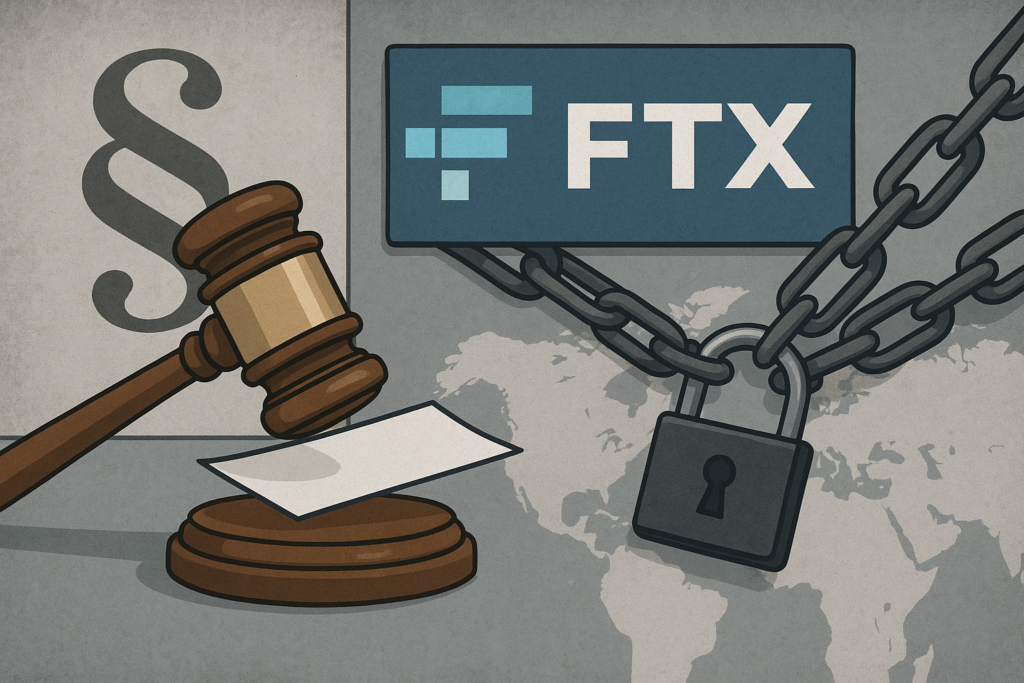
In a dramatic move, the estate managing the collapsed cryptocurrency exchange FTX has officially withdrawn its controversial motion to freeze or delay repayments for creditors in nearly 50 countries. This decision marks a key development in the ongoing bankruptcy proceedings, highlighting the complex interplay of legal disputes, cross-border financial regulations, and creditor advocacy in the aftermath of one of the largest crypto failures in history.
Why the Foreign Payout Freeze Was Proposed
Initially submitted in July, the motion aimed to classify countries such as China, Russia, Saudi Arabia, and Ukraine as restricted jurisdictions, citing concerns over local compliance risks and unclear regulatory frameworks. The FTX estate argued that processing repayments to creditors in these regions could potentially breach foreign laws, thereby putting the bankruptcy framework at risk. The estate sought approval to delay or freeze payments to creditors in these countries until legal conditions improved.
However, the plan was met with overwhelming pushback, with over 70 formal objections filed by creditors, advocacy groups, and lawyers from across the globe. Many critics claimed the proposal discriminated against international creditors and violated the principle of equal treatment under bankruptcy law. Detractors also feared that approving the motion would set a harmful precedent, allowing future bankruptcy estates to selectively exclude foreign creditors.
What the Withdrawal Means for Creditors
On Monday, the FTX Recovery Trust announced it had withdrawn the motion “without prejudice,” leaving the door open to potentially reintroduce the proposal later. For now, the decision spells relief for creditors in affected regions, particularly in parts of Asia, Eastern Europe, and the Middle East. Despite this progress, creditor representatives have urged continuous vigilance. As Weiwei Ji, a vocal creditor advocate, stated via social media, “Stay vigilant until all repayments are completed.”
While the withdrawal has been widely seen as a win for affected creditors, uncertainty persists over the actual payouts. FTX has initially pledged to return up to 143% of recognized claims, but these repayments will be in fiat currency, not digital assets. For creditors who lost crypto holdings in the exchange’s collapse, this approach may undervalue the assets significantly, as leading cryptocurrencies like Bitcoin have since risen sharply in market value.
Key Challenges Ahead
In addition to valuation concerns, the case underscores broader issues within the cryptocurrency and regulatory landscape. As creditor representative Sunil Kavuri noted, “The fiat-based repayment calculated at 2022 prices does not reflect the current market value of lost crypto assets.” Kavuri and other advocates have continued to push for adjustments to the estate’s repayment structure to better align with market realities.
For novice cryptocurrency investors looking to safeguard their holdings, this case offers critical lessons about managing risk while investing in the volatile digital economy. Using secure wallets, monitoring reputable exchanges, and staying updated on regulatory developments can help minimize exposure to similar risks in the future.
Protecting Your Cryptocurrency Investments
To ensure the safety of your digital assets, products like the Ledger Nano X hardware wallet offer a secure way to store and manage cryptocurrencies offline. This device supports a wide range of cryptocurrencies and provides advanced security features, helping users maintain control over their assets even during unexpected market downturns or exchange collapses.
As developments around FTX’s insolvency continue to unfold, this case serves as a reminder that the world of cryptocurrencies remains a frontier of innovation, complexity, and potential risks. Staying informed, leveraging secure tools, and advocating for fair treatment are critical steps for any investor navigating this evolving industry.






